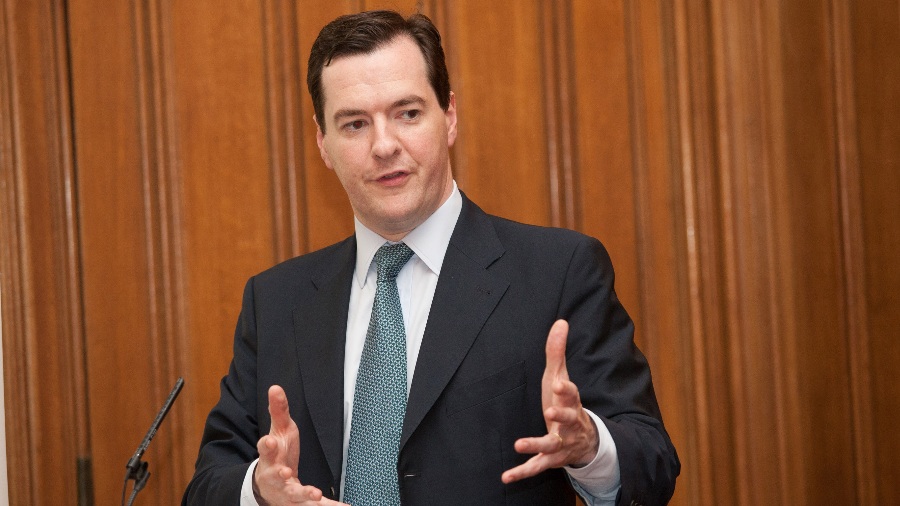Intel to use London to research the city of the future
UK chancellor hails pioneering research project

Sign up for breaking news, reviews, opinion, top tech deals, and more.
You are now subscribed
Your newsletter sign-up was successful
Intel has announced a UK-wide network of research labs as well as a partnership with two leading universities to research technologies that will contribute to the cities of the future.
The snappily-named Intel Collaborative Research Institute for Sustainable Connected Cities (ICRI) will be Intel's global centre for research and will be based in London with the aim of developing computing solutions to the problems of increased urbanisation and the need for sustainability in the face of global population growth.
Speaking at Intel's launch event at No 10 Downing Street, Chancellor George Osborne said: "This new investment from Intel is great news for the UK economy and is recognition of the Government's commitment to ensuring that the UK becomes the technology centre of Europe building on success such as Tech City and the recent investments in supercomputing.
"It's two years since we committed to the tech cluster in East London – [part of which] was already there…[it has] grown to 700 companies today including Google, Cisco, Vodafone and Amazon and of course Intel. I mention big companies, but there are many micro companies and start-ups."
Osborne also referenced the previous £10m of Government funding contributed to an open data institute in Shoreditch headed by Tim Berners-Lee.
Researching the cities of the future
"As leaders around the world look to the future there's a growing recognition that without the adoption of true sustainability we're going to be in deep trouble," said Justin Rattner, Intel chief technology officer and director of Intel Labs. "The cities of the wold continue to pose the greatest challenge for the future – half the world's population live in cities.
"The demands of cities will truly represent the demands of humanity. These demands are at the heart of Intel and UK's efforts to sustain practices. The city as a laboratory is just such a challenging and provocative idea."
Sign up for breaking news, reviews, opinion, top tech deals, and more.
Rattner talked about our phones and our vehicles as ideal ways to collect data within an urban environment. "They're all rolling sensor platforms – we just need to connect them. Once we do, you'll be amazed at what can take place [in terms of city management]."

"Once you give individuals feedback on how they use resources, they quickly change their habits. We think that city planners and futurists will use this data to plan these sustainable cities. Why London? It has the largest GDP in Europe. Importantly there are over 300 languages and 200 ethnic communities – it's a microcosm of the planet itself. The Olympics is a great experiment already in the making."
George Osborne said the research would be useful "…to create new products that can help us navigate our way through life". "It's fantastic that it's happening In London, I think the greatest city in the world, and the most international city in the world. It's fantastic working with Intel who already employ around 1,000 people in the UK and it's great these labs will be spread around the UK."
The ICRI will see Intel researchers working alongside academics from Imperial College London and University College London. It will join nine other R&D labs in the UK including London, Brighton, Swindon and Aylesbury, with further locations to be added by the end of the year. There will also be collaboration with Tech City companies to identify and analyse emerging trends within cities.
Dan (Twitter, Google+) is TechRadar's Former Deputy Editor and is now in charge at our sister site T3.com. Covering all things computing, internet and mobile he's a seasoned regular at major tech shows such as CES, IFA and Mobile World Congress. Dan has also been a tech expert for many outlets including BBC Radio 4, 5Live and the World Service, The Sun and ITV News.